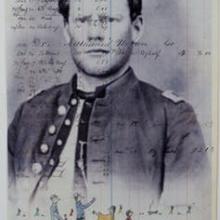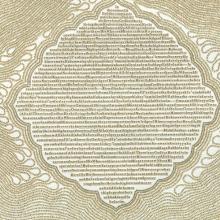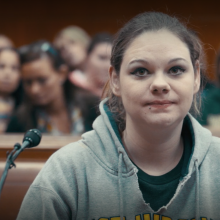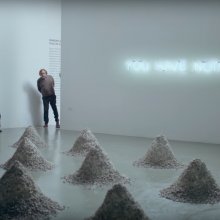Arts & Culture
'Coco' functions beautifully as a unifying reminder of the ways family and legacy influence us.
As for “complicit,” [Solomon] said several other major events contributed to interest in the word. They include the rise of the opioid epidemic and how it came to pass, along with the spread of sexual harassment and assault allegations against an ever-growing list of powerful men, including film mogul Harvey Weinstein.
Genuine gratitude brings us humility and reconnects us with God and each other —especially those who need us in some way. It erases our society’s illusions about winners and losers. It directly challenges our judgments about who is deserving and who is undeserving. It reminds us of our total dependence on God for everything.
Starting with Thanksgiving’s early champion, Sarah Josepha Hale, the history of Thanksgiving is rooted in marketing. Marketers not only helped create many of the rituals and cultural myths associated with the Thanksgiving meal, but they also legitimized and maintained them.
3. Historically, Men Translated the Odyssey. Here’s What Happened When a Woman Took the Job
“It offers not just a new version of the poem, but a new way of thinking about it in the context of gender and power relationships today. As Wilson puts it, ‘the question of who matters is actually central to what the text is about.’”
Gratitude, say religious leaders from many traditions, is one of the most important spiritual disciplines for a whole and healing life. And the discipline of remembering what and who you are most grateful for is especially important in difficult and even dangerous times like these. There are gratitude prayers, meditations, and walks, which focus our minds and hearts on the things and people we are most thankful for when we are most easily conscious of the things and people who make our times most difficult and even dangerous.
The story of Soule’s and Cramer’s actions and their courage to say “no” to the killing of peaceful people at Sand Creek is an important chapter of U.S. history. I maintain that it is people like Soule and Cramer who truly deserve to be remembered through monuments and memorials, and can be a source for a different kind of historical understanding: one based not on abstract notions of justice and right, but upon the courage and integrity it takes to breathe life into those virtues.

Image via Felix Lipov/Shutterstock
Among the victims of police brutality was none other than Christ himself. While this notion conjures up mixed emotions — including unbearable sadness — we should also take heart. Jesus experienced and overcame police brutality — so can innocent, powerless black women and men. To do so, churches with those most affected by police violence in attendance must cultivate a liberating praxis of anti-oppression retaliation, which includes teaching the characteristics of Christ’s response to law enforcement victimization. The writings of the great theologian James Cone, and others after him allowed us to rip the misguided veil of blasphemy and usher black people into a newfound solidarity with Jesus of Nazareth.
What must it be like to survive your own execution?
It happened this week in Ohio. And it’s not the first time.
7. How an American Ex-Jihadi Struggled to Rebuild His Life in the Country He’d Once Vowed to Destroy
In The New Republic, Tiffany Stanley does a deep dive into the life of Jesse Orton, who has been lifted up as the poster boy for the work of countering violent extremism: “Morton’s path to salvation seemed almost too good to be true. Could the transition from jihadi to patriot really be so seamless, so rapid, so complete? The answer to that question would, within months of Morton’s sudden burst of fame, become painfully clear. The answer was no.”
Auggie’s unusual appearance and suffering under the knife have made him a gentle, kind, and mostly self-aware kid. He faces constant bullying at the hands of a classmate and his friends, but because of his kindness and self-deprecating sense of humor, other students gradually begin to befriend him. As they look past his outward appearance, they can see the wonder of having Auggie in their lives and he can see the wonder that he really is.
In 2015, Montreal-based artist Guy Laramée placed a large-format Bible from the 19th century upright with the spine open. Then, using a power grinder, he carved a landscape into the pages and painted along the curvatures, evoking the space of a cave whittled into a sheer mountainside.
It is a beautiful summoning of desert spaces, conjuring the place of the biblical prophets. It is, however, an unusual treatment of the Good Book.
And it is one that would never find its way to the $500 million Museum of the Bible, opening Nov. 17 in Washington, D.C. That museum is dedicated to the preservation and presentation of the sacred text through the ages.
In many ways, drug court functions like church. The men and women sit side-by-side in pews. They welcome newcomers. They hold each other accountable. And though there is no set time for a “passing of the peace,” when they cheer on those who have remained sober, it looks like a place of forgiveness.
If our supposedly secular culture leaps at revelations of hypocrisy, that’s because the concept is deeply embedded in the Abrahamic tradition. The early Hebrew prophets like Amos and Isaiah were all about denouncing demonstrations of piety and religious observance as worth nothing in the absence of righteous behavior.
But help is something Christian, and everyone around him, has trouble giving to those who really need it. The Square is full of characters asking for help from unwilling people, including homeless people, charity workers, and women being attacked. Even Christian, an attractive upper-class white guy, can’t get help when his wallet and phone are stolen on the street.
"I will probably be back next week and the week after that forever and ever,” Strong concludes, “because this isn't just a scandal. It didn't just start this week. It's just actual reality for half of the population.”
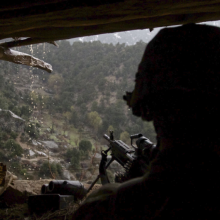
Image via No Greater Love
In "No Greater Love," a retired U.S. Army chaplain interviews the soldiers from his unit, documenting their service, sacrifice, and suffering.
Our thoughts and prayers are fleeting breath.
If we just dream of what could be
And do not build community,
And do not seek to change our ways,
Our dreams of change are false displays.
Kenneth Branagh’s new big-screen adaptation of Christie’s novel is a diverting, gorgeous-looking film that struggles a little at showing the humbling effect that dilemma has on the great detective. However, it does a good job of portraying the pain at the center of this story, and how it metastasizes in its characters.
On 2016, David Axelrod, the chief strategist of Barack Obama’s presidential campaigns, interviewed Jon Stewart at the University of Chicago, my college campus, for his CNN podcast The Axe Files. I was in an audience of students eager to see the former host of The Daily Show return to the public eye, and I’d wanted to ask him a question during the Q&A portion. I didn’t get to, but I am confident that even if I had, my question would not have been as important as Dan Ackerman’s.





